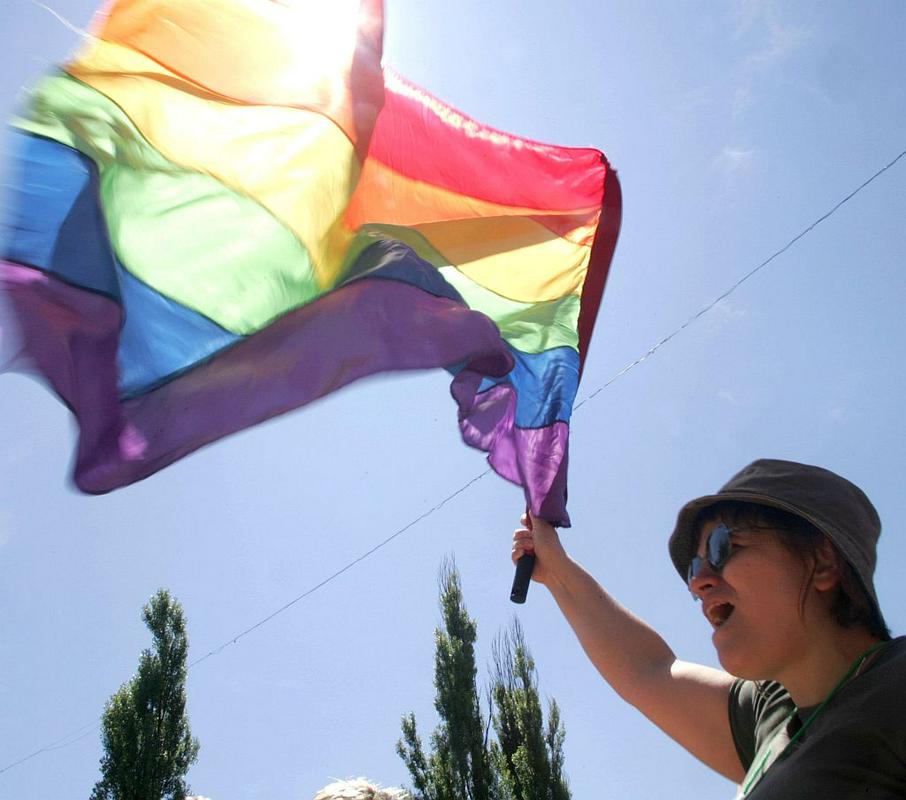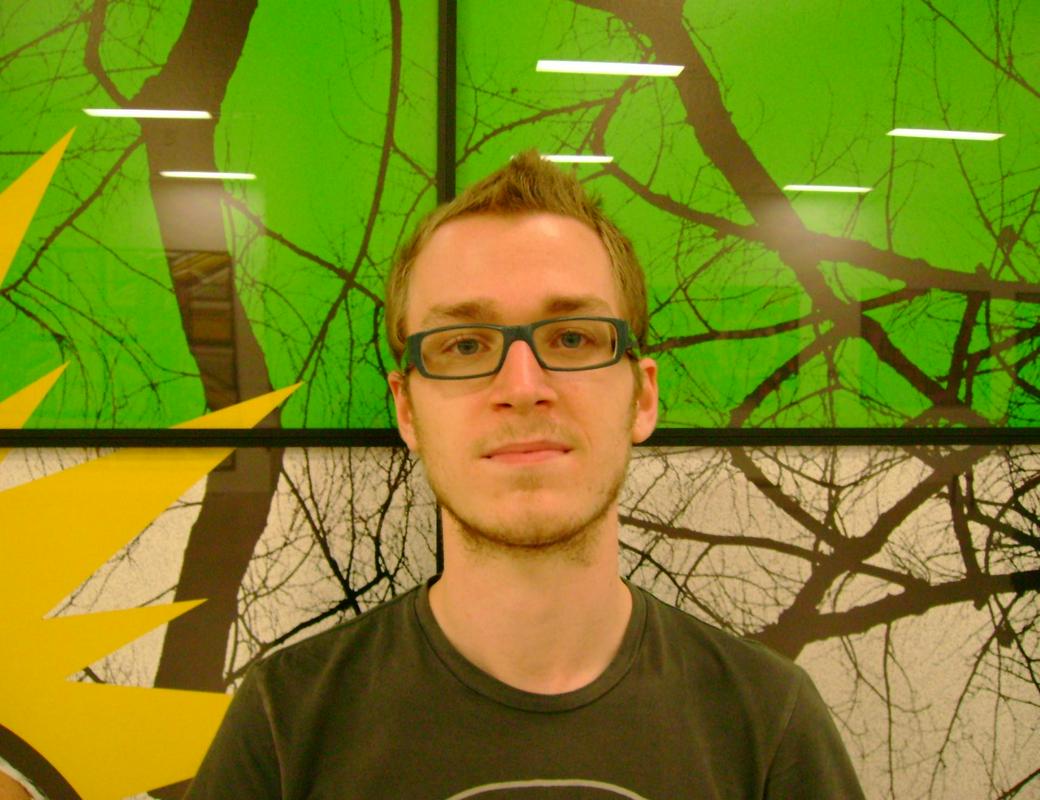
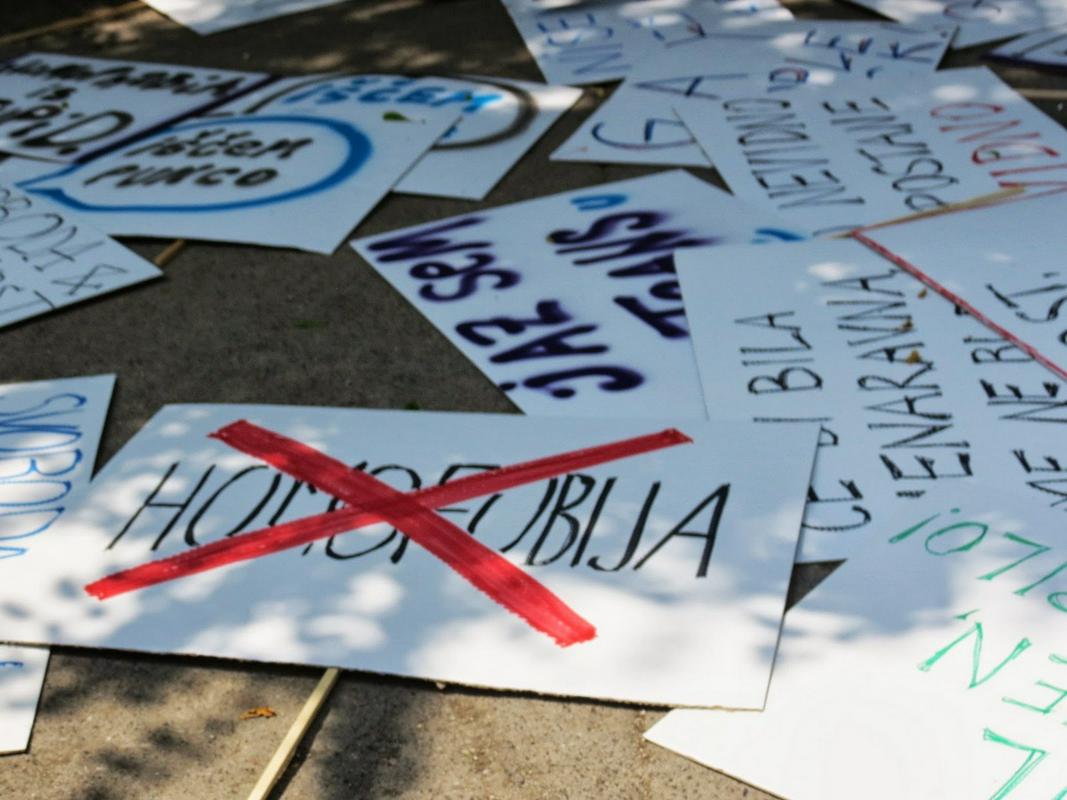

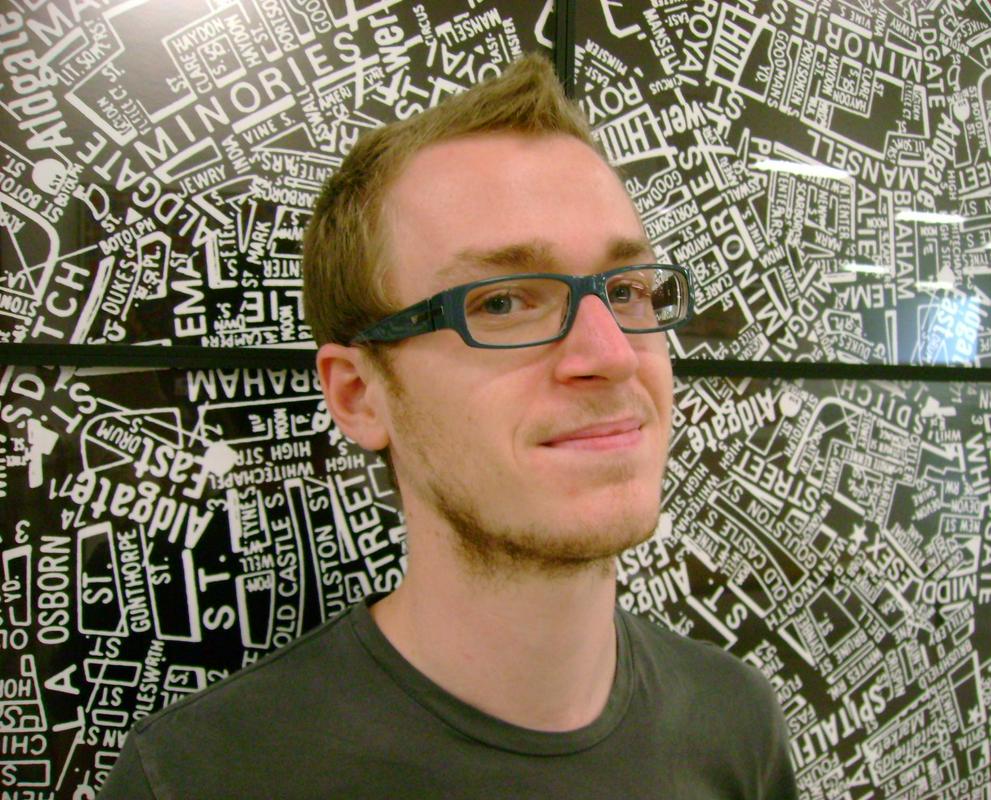

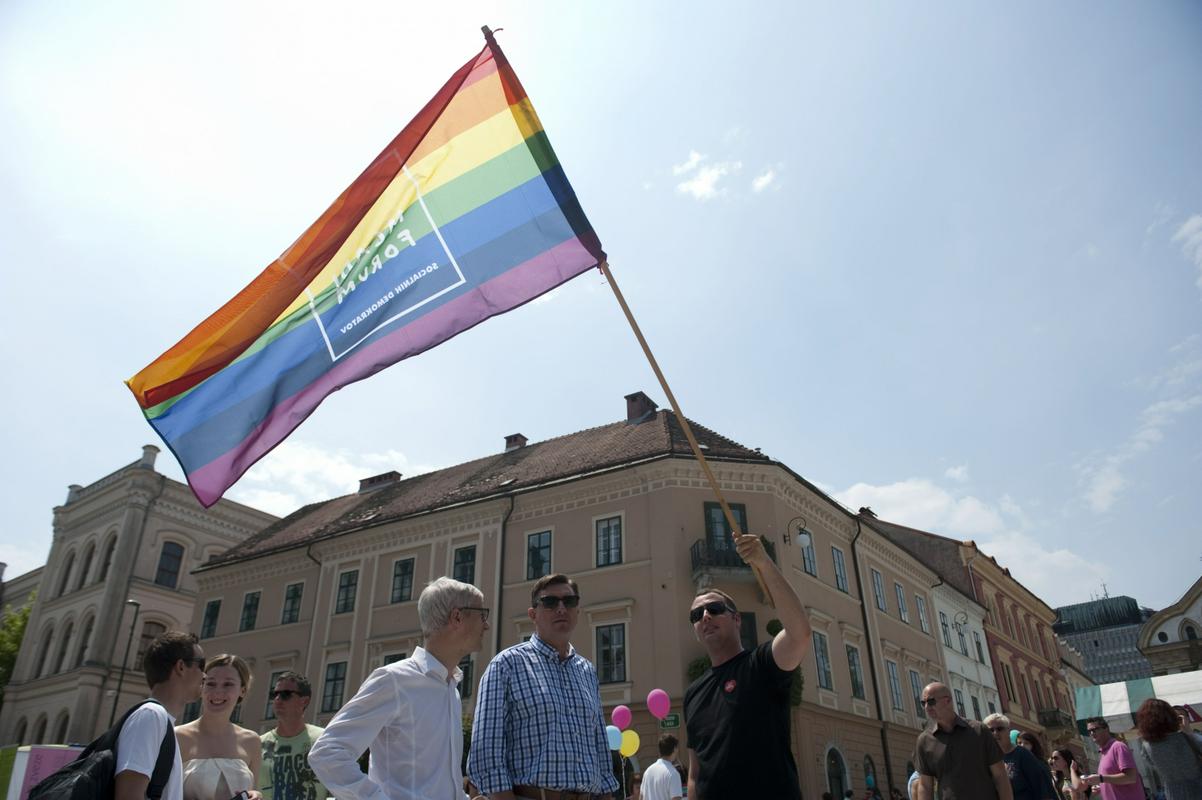
Is school friendly towards all pupils, regardless of their race, religion, or sexual orientation? In theory it should be, but practice shows differently. Aleš Zobec received the Prešeren reward for his diploma work dealing with non-heterosexuality in Slovenian public schools.
"Although public schools should include everybody and favour nobody, regardless of any special circumstances, including sexual orientation, the author through analysis of the previously completed empirical researches shows that school, and other teaching activities are quite often heteronormative, and that non-heterosexuality is dealt with only sporadically, and not at all systematically," is written in the synopsis of the diploma work which last year received the reward.
28-year-old Zobec, who studied Educational Sciences and Sociology of Culture at the Faculty of Arts in Ljubljana, and is also finishing the parallel study of Comparative Literature and Literary Theory, is the author of a number of articles on non-heterosexuality. Presently he is performing an unpaid internship at one of the Ljubljana secondary schools, since the government cancelled paid internship in education, and thus the receiver of the Prešeren reward we interviewed is, ironically, on welfare.
What has the analysis of your research showed? What is the image of non-heterosexuality in public schools?
In my diploma work I tried to find the answers to mentioned accusations in binding international documents, and in our legislation. I indicated that the teacher within the formal frame of public schools have firm support for discussing also non-heterosexuality. The school has a duty not to exclude anyone and not to favour anyone, regardless of the personal circumstances. In a nutshell, human rights and duties oblige teachers to take into account at their work also the differences in sexuality and sexual expressions. Anyway, the 2nd article of the Protocol no. 1 to the Convention for the Protection of Human Rights and Fundamental Freedoms (saying that the parents have the right to ensure the education and teaching of their children in conformity with their religious, philosophical and pedagogical convictions /author's note/) has been often used when a certain group of people tried to prevent teaching of, in their opinion, "morally disputable topics" in school. But the European court for human rights has given clear answers several times. The last such case was "Dojan and others against Germany", where a number of parents opposed to the sex education in elementary school, which also included a workshop on sexual violence. Parents labelled some of the contents as "pornographic", and claimed their education to be education in the spirit of "purity and decency" - as opposed to the classes of sex education leading to "premature sexualisation of children" and at which sexuality was supposedly treated in an "emancipatory and
liberal" manner. Workshops on sexual violence were deemed by the parents as "detrimental to moral development" of their children, and the parents claimed that education in the Cristian spirit of purity before marriage was sufficient protection from sexual abuse. The parents lost the lawsuit. The court wrote once again that the Article does not prohibit the states to include the aims and standards of knowledge regarding contents with philosophical or religious background or consequences. The mentioned Article demands that the work in school is performed in a critical, objective and plural manner, and the state (or the professionals) must not aim for indoctrination, i.e. impose any particular standpoints. Yet it does not mean that the pupils shouldn’t be acquainted with the convictions differing from their own. Even more, schools must respect and protect differences in convictions, but the respect for differences has to remain within borders which are in Slovenia defined by the Constitution. If I give an actual example: if someone's personal conviction that non-heterosexuality equals immorality results in humiliation, exclusion, causing problems, taunting ... of certain individuals, it is considered intolerable and as opposed to a number of formal provisions. Such actions must be clearly labelled as unacceptable. The point is that in a public school no choice exists between tolerance and intolerance to diversity, between equality and non-equality of individuals.
How does it feel to be gay in secondary school today? Is the system the bigger problem, or the schoolmates?
The answer to your question is difficult, as I wouldn't like to fall into subjective theorizing. Schools differ very much; in certain schools it is more difficult to assure respect of diversity that in others, although all schools should be a safe environment for all the pupils (and teachers). I have already mentioned that the professional workers are obliged to react in a clear, decisive and professional manner, to any occurrence of violence and discrimination – i.e. if the "problems" occur in accepting diversity by children, i.e. pupils. Although I have mentioned that teachers have formally the right to discuss non-heterosexuality (the formal provisions even demand this subject to be discussed!), there is a lack of explicit mentioning of non-heterosexuality in the curriculums. Therefore it would be sensible to write down the aims in reference to non-heterosexuality in a more explicit manner, and thus finally prevent excuses claiming that "there is no formal background" for teaching about non-heterosexuality. It reminds me of the dilemma and requests in reference to the 14th Article of our Constitution: also there the sexual orientation is not explicitly mentioned, but included within "other personal circumstances". Here as well sexual orientation should be written down explicitly – in order to avoid endless debates whether sexual orientation should be considered a personal circumstance, based on which discrimination would be inadmissible.
Can pupils be taught tolerance, if they come from the environment and families where tolerance was not present?
The answer to your question is not simple. The school is only one of the educational-socializational factors, and its power is thus limited. Even more, general goals, like developing tolerance, respect etc., can be achieved only indirectly, which is an additional obstacle. As I have already mentioned, in schools we must not set our goal at indoctrination to particular convictions. But there is no choice between tolerance and intolerance. Human rights as the foundation of our society do not demand from us to love, or put oneself into shoes of a person different from us. We must, however, respect the forms of non-discriminatory behaviour, and assurance of equal rights for all – whether we like it or not. School must be the place where the facts are faced, and those can be in contrast with other person's particular convictions. Confrontations can lead into moral shock, and consequently to awareness of a person's particularity in reference to someone else's particularity, if I borrow the words of Mojca Kovač Šebart.
Do you have any concrete suggestions for creating a school friendly to non-heterosexual pupils?
Another question to which there is no unambiguous answer. A school which allows cohabitation of diversity is a school friendly to all pupils. It means that the professionals must always clearly and professionally react to any form of discrimination, and they must give pupils a positive example, support them and give affirmation to their intimate choices, public expression of which could be possible as well.




















































